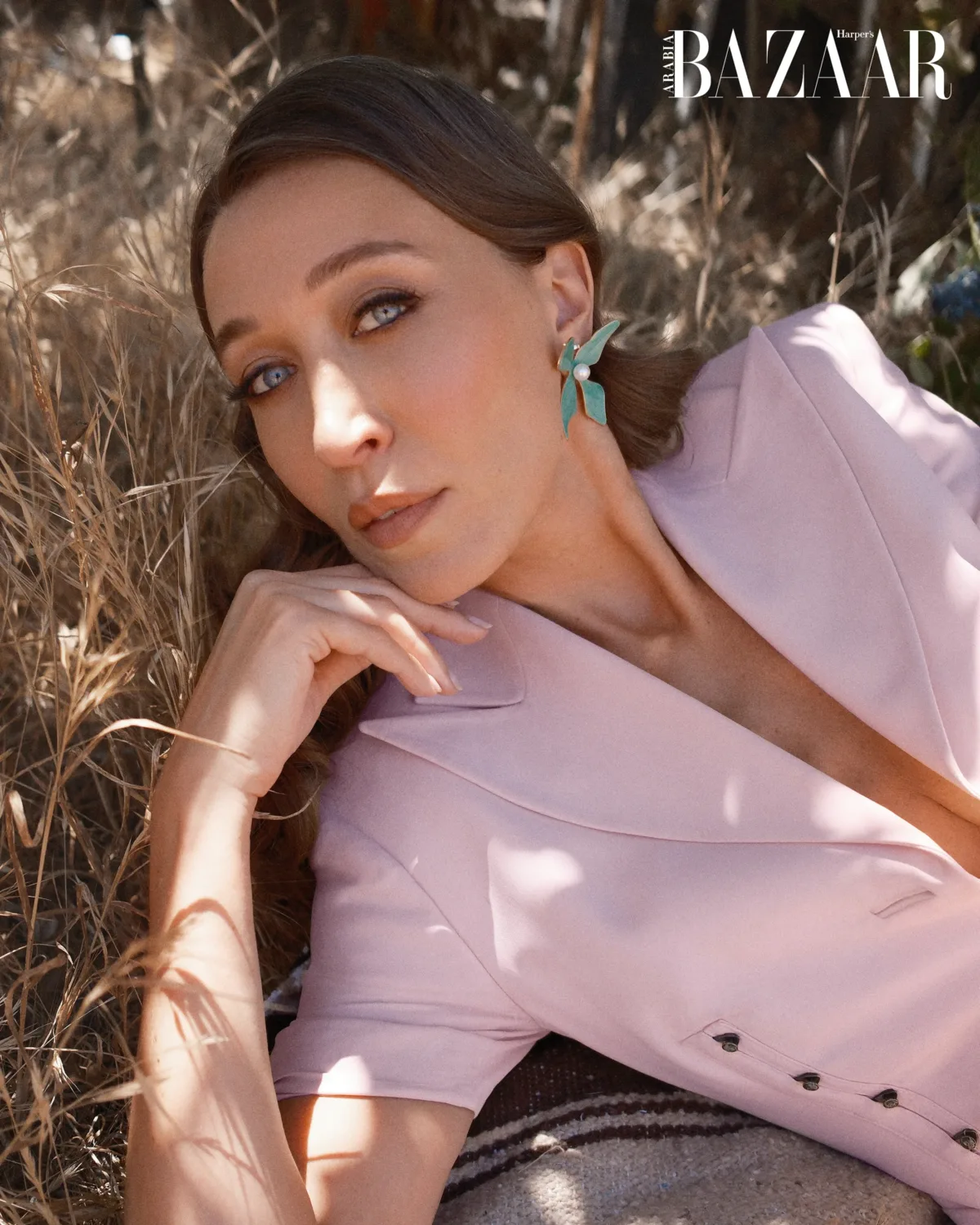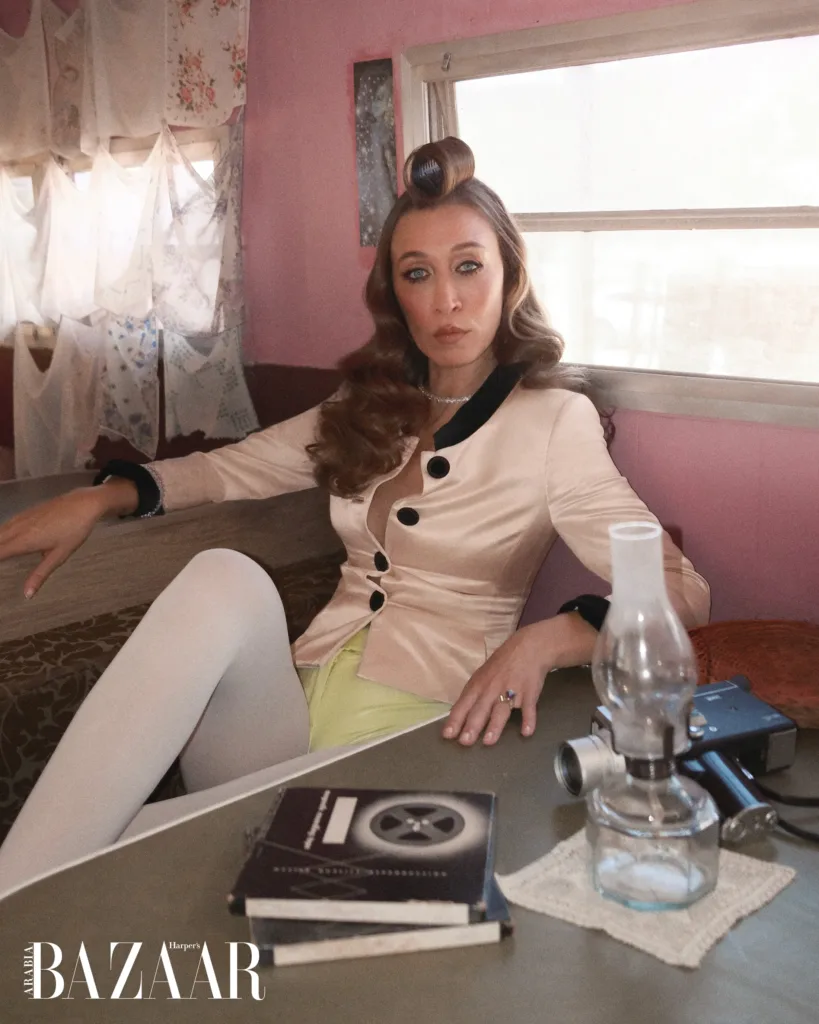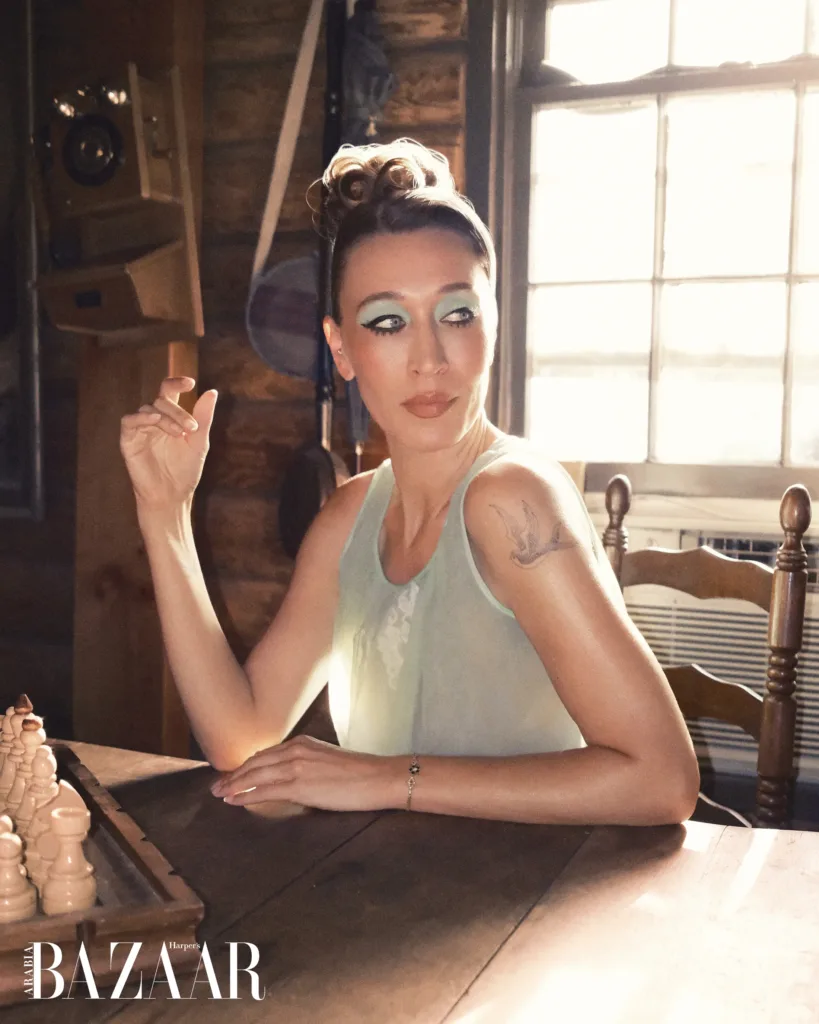
Palestinian Creative Director Alana Hadid On The Evolution Of Ethical Style: “Fashion History is Literally Resistance Stitched Into Fabric”
Alana Hadid has a clear ethical manifesto, and isn’t afraid to shout about it. Shot in vintage and sustainable pieces in her home state of California, the Palestinian activist and creative director showcases her dedication to fashion with feeling
Outspoken, passionate, and committed—those are the descriptors that most aptly describe Alana Hadid. The California-based Palestinian creative director, known for her activism and advocacy, fully embraces the causes close to her heart. Case in point: she’s spearheading Watermelon Pictures which focuses on cultural representation and financing films that put a spotlight on her native country. Another totem that’s intrinsic to her belief system? Sustainable fashion. The high-profile stylist who co-founded unisex label La Detresse, insisted on donning outfits that stayed true to her ethos for this exclusive Bazaar Arabia shoot. Alana, who made her catwalk debut at Saks Potts’ Copenhagen Fashion Week show and even scored her first magazine cover, aged 40, days before turning up on set for this story, educates us about her love for vintage finds, and why we need to start putting the planet first.

What inspired you to prioritise – and put a spotlight on – sustainability in fashion?
I grew up surrounded by people who really knew how to dress. Style with a capital S – but it was never about labels. My family taught me early on that fashion was personal, political, and powerful. Vintage was my gateway drug. I started very young and I haven’t stopped. Thrift stores were like treasure hunts, except instead of gold, I was looking for perfect oversized jeans with a story, or the worn-in T-shirt of my dreams. Shopping vintage taught me that great style doesn’t need to come at the expense of the planet or people. And honestly, clothes with a past just hit different. They carry energy. They carry history. And they definitely don’t fall apart after three washes.

What challenges have you faced in maintaining a commitment to ethical fashion?
Oh, the struggle is very real. Ethical fashion can feel like a full-time job: label checking, supply-chain sleuthing, dodging greenwashing like it’s dodgeball. But nothing good comes easily. The biggest challenge? Convenience. Fast fashion makes it too easy to click and regret later. But I’ve learned nothing great comes that quickly. I learned to slow down and ask myself the harder questions: Who made this? What’s the real cost? Is it worth it? I also try to lead with grace for myself and others. No one’s perfect, but intention matters. Progress over perfection, always. The work is worth it.

What role does authenticity and transparency play in your approach to sustainability?
If I’m not being honest, what’s the point? I’m not here to pretend I live some pristine, zero-waste fairy tale life. I’m here to tell the truth: sustainability is messy, nuanced, and full of contradictions, just like life. Authenticity, to me, means admitting when I don’t have all the answers but staying committed to asking better questions. Transparency means showing up, even when it’s uncomfortable. Whether it’s in fashion, activism, or just being a human on the internet, I think people crave real. And if I can be real and responsible at the same time? That’s what I want.

In what ways do you believe ethical fashion can evolve, and what role do you see yourself playing in its story?
Fashion history is literally resistance stitched into fabric. Whether it’s Palestinian tatreez that tells stories through thread, or punk fashion ripping up the rules, style has always been political. I’m inspired by the people who used fashion to push boundaries and tell the truth when the world wanted silence.

As for the future?
I hope fashion becomes less trending and more intentional. Less about trends, more about truth. Ethical fashion should be the norm, not a niche. I want to play a role in reminding people that fashion can be gorgeous and grounded. That you can look good without looking away. I see myself as a bridge between fashion-forward and meaningful, between style and substance. Also, let’s be real. I’ll still wear something fabulous (and ethical) to the revolution.
Styling By Sarah Alsalman, Photography By Abigail Tulenko
From Harper’s Bazaar Arabia September 2025 Issue.
